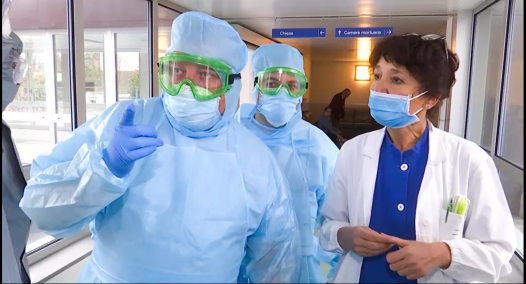Moses Oba
A Russian university has said the clinical trials of the world’s first vaccine against the coronavirus disease on humans have been completed successfully.
The trials, which were conducted on a group of 38 volunteers in two batches, began on 18 June, the Sechenov First Moscow State Medical University said in a statement on its website on Monday.
The Russian ministry of health sanctioned the trial on June 16. The university said the first group of volunteers would be discharged on Wednesday and the second on July 20.
The statement however, did not give many details about the drug or when this vaccine would enter commercial production stage. There are several hurdles to be passed in the search for any vaccine.
Meanwhile, the development has been generating a buzz across the world, adding a new twist to the vaccine development race.
Many other countries, including the United States, Brazil, Germany, China, and others are in the race to find a cure for the contagion which has spread to more than 200 countries, sickening over 11 million people and claiming nearly 600, 000 lives.
For most of its victims, the coronavirus causes mild or moderate symptoms, such as fever and cough that clear up in two to three weeks after a combination of treatment therapy, leading to the recovery of almost six million sufferers.
But the contagion is far more deadly for older adults and people with existing health problems. It can cause severe pneumonia that can makes breathing almost impossible for the victim.
This has made ventilators, an automated equipment that pumps air in and out of the lungs of patients unable to breathe on their own very scare and high in demand.
The World Health Organisation (WHO) head, Tedros Ghebreyesus, said the worst is yet to come, noting that the virus would infect many more people if governments did not start to implement the right policies.
Finding a cure (vaccine) for the disease is the only way out, health experts say.
Russia’s vaccine
According to the Russian university, the volunteers received an intramuscular injection of the vaccine.
Initial side effects such as headaches and high body temperature disappeared within 24 hours of administration, Russian local media reported.
The participants will have to stay isolated for four weeks to avoid other infections, after which they will be monitored for half a year.
The vaccine is also being tested in liquid form at Burdenko Military Hospital in Moscow.
Dangote adbanner 728x90_2 (1)
More research could be needed before the vaccine is cleared for use, as the trials was small-scale, health expert say.
Vaccine tests earlier performed on a group of volunteers in Russia showed that they were developing immunity to the coronavirus.
Russia, a country of nearly 150 million population, has the fourth-highest confirmed cases of COVID-19 after reporting 733,699 infections leading to over 11, 000 deaths.
Race
There are at least 21 vaccines currently under trial worldwide, according to the WHO. Every country and every lab is taking a different approach to finding the right solution to stop the virus.
WHO said there are only two firms in Phase 3 trials – which involve randomised controlled trials on large patient groups – for a vaccine, namely the Chinese company Sinovac and the UK-based AstraZeneca.
Brazil was the first emerging market to get a test drive of the Oxford University coronavirus vaccine.
In April, President Andry Rajoelina of Madagascar launched a local herbal concoction he claimed prevents and cures the novel coronavirus.
Mr Rajoelina has been promoting the brew for export, saying it is the country’s “green gold which will change history”.
The potential benefits of Covid-Organics, a tonic derived from artemisia — a plant with proven efficacy in malaria treatment — and other indigenous herbs, have not been validated by any scientific study.
But following a new surge in infections, the island in the South African region has been forced into a fresh lockdown, two months after the restrictions were eased.
The development has put doubts on the much-touted herbal cure.




